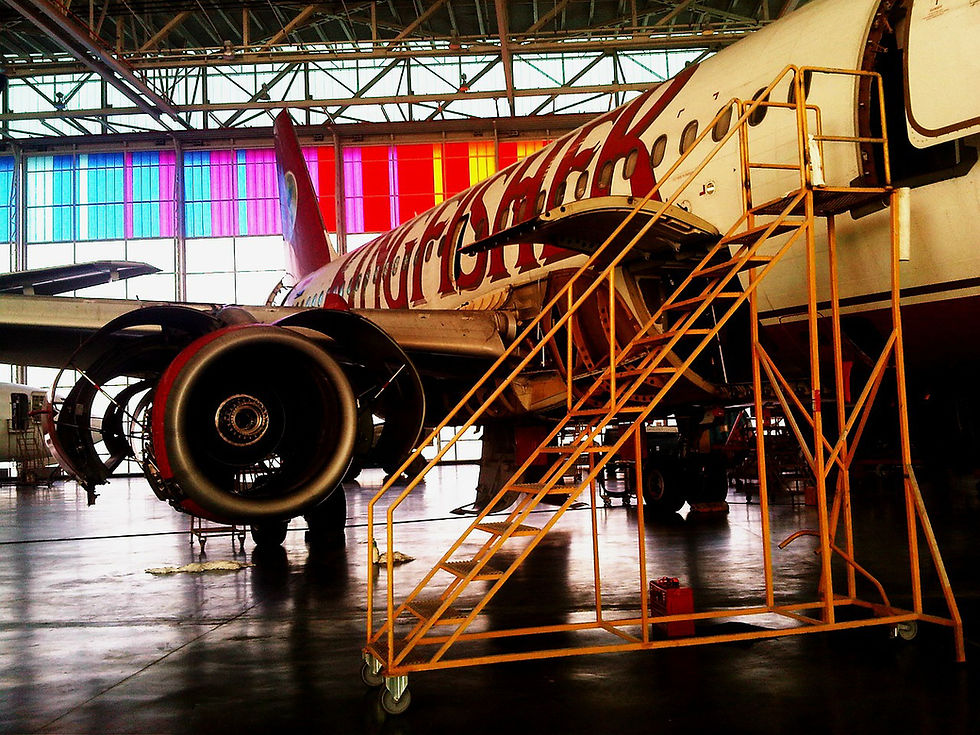
Piloting aircraft and serving as aviation crew present unique mental health stresses and challenges compared to other professions. As one pilot described, "the responsibilities and potential consequences of an error can weigh heavily on our minds" (Jones, 2019). Constantly juggling safety, schedules, weather changes, and passenger needs while confined in an aircraft for extended periods can accumulate stress. Crew must also maintain hypervigilance and quick decision-making despite fatigue from irregular shifts and long duty days (IATA, 2021). Over time, unaddressed mental health issues like stress, burnout, or depressive symptoms put both individual wellness and operational safety at risk.
Self-care and social support
To combat job stress, developing effective self-care routines is paramount for aviation professionals. Regular exercise, proper nutrition, relaxation practices, and maintaining social connections outside of work all serve as buffers against cumulative mental fatigue (Civil Aviation Authority, 2019). Expressing emotions to trusted colleagues can alleviate the sense of isolation common in cockpits and cabins (IATA, 2021). Support networks comprised of fellow crew members facing shared challenges provide listening ears during difficult flying experiences or periods of personal hardship.
Education and awareness
Addressing mental health carries additional importance given that pilots and crew act as safety authorities for passengers (Civil Aviation Authority, 2019). However, stigma around vulnerabilities or seeking help persists within many aviation cultures (Air Line Pilots Association, 2021). Education that dismantles stigma while improving knowledge of mental health signs, available support services, and the benefits of preventative self-care can positively shift perceptions industry-wide. Making health resources confidential with no consequences for job status builds trust, encouraging utilization (IATA, 2021). Continued discussions normalize struggles as human experiences impacting any occupation—not weaknesses specific to aviation alone.
Professional Support Options
Many airlines and pilot unions now offer employee assistance programs providing counseling, psychiatric care referrals, or peer support teams (Civil Aviation Authority, 2019). Airlines for America (2021) recommends establishing work-life balance best practices, valuing mental wellness over productivity, enhancing communications channels for concerns, and promoting transparency surrounding leave policies as supportive measures. Furthermore, organizations may offer mental health first-aid or crisis intervention training, educating all personnel, not just crew, to recognize distress in colleagues (Air Line Pilots Association, 2021). Such programming advocates for staff well-being as well as vested interests aligned with operational safety.
In summary, optimal mental health serves as both a personal and industry concern within aviation due to continuous stress exposure and the great responsibilities carried out daily. With self-care, supportive relationships, open discussions lessening stigma, and expanded employer resources, crewmembers can effectively manage their personal wellness over careers navigating the skies. Combined efforts foster a culture where mental health rises equal in priority to physical safety, reducing risks for all aboard aircraft and runways below.
References
Airline Pilots Association (2021) Guidance for supporting the mental health and well-being of flight crews. https://www.alpa.org/en/advocacy/mental-health
Civil Aviation Authority (2019). Guidance on the management of fatigue in aviation https://publicapps.caa.co.uk/docs/33/CAP1690%20March%202021.pdf
International Air Transport Association (2021) IATA guidance on fatigue risk management systems https://www.iata.org/en/publications/papers-reports/guidance-on-fatigue-risk-management-systems-for-airlines/
Jones, J. (2019, December 6). Aviation's missing link: Why pilot mental health matters Simple Flying. https://simpleflying.com/pilot-mental-health-matters/
Airlines for America (2021, February 18) Airlines commit to mental health and well-being initiatives for frontline employees. https://airlines.org/airlines-commit-to-mental-health-and-well-being-initiatives-for-frontline-employees/
Comments